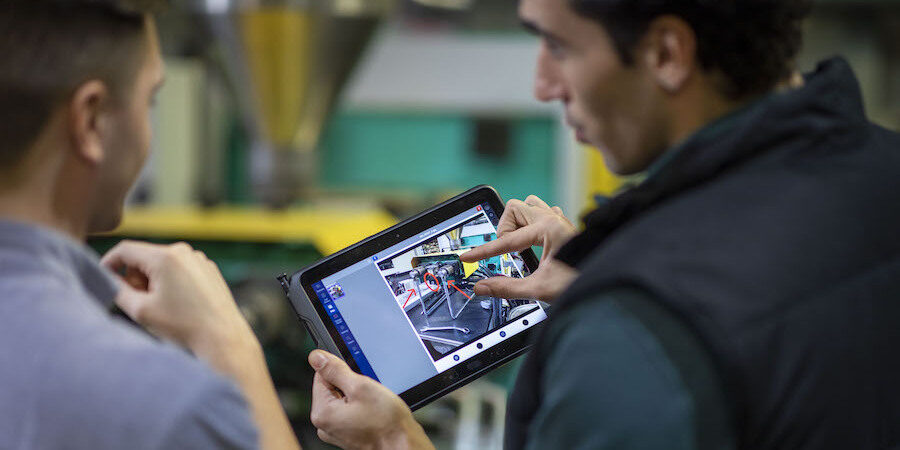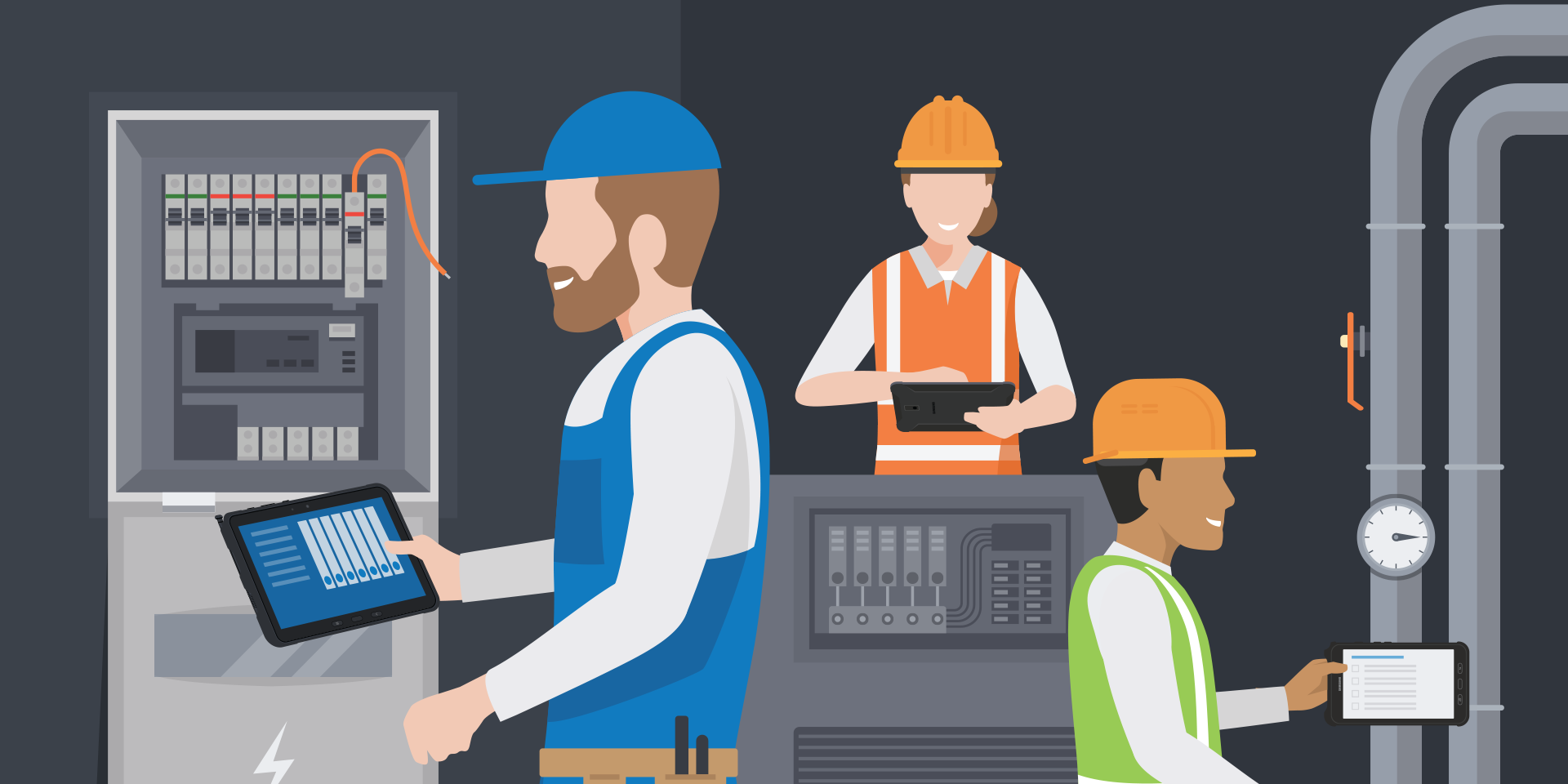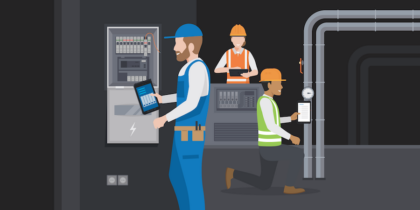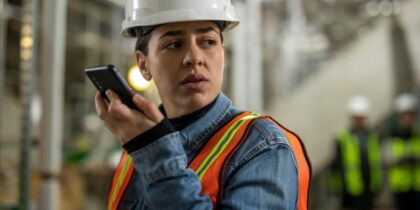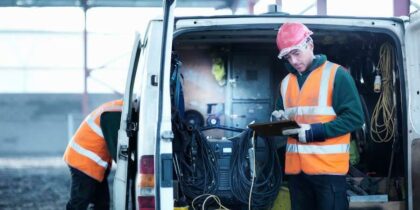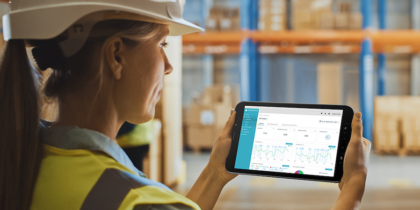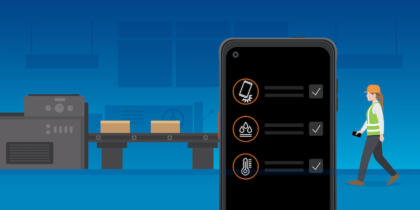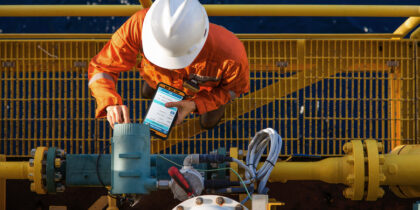In today’s customer-driven service landscape, uptime in field services is a crucial key performance indicator (KPI). Accuracy and speed count for a lot. On-site expertise is invaluable in maintaining this KPI, but sometimes a field service worker’s knowledge or access to knowledge might be limited.
Traditionally, workers had to depend on making a phone call to a colleague or reviewing a paper manual to overcome this stumbling block. Fortunately, enhanced technology solutions, such as augmented reality (AR) delivered through mobile devices, are supporting on-site expertise in field services and boosting uptime in the process.
When on-site expertise is a problem
Increasing technological complexity, a phase lag in training or complicated challenges on the ground might test a field service worker’s capacity to deliver accurate and speedy service.
To maintain uptime in such circumstances, field services workers are forced to rely on limited access to expertise. Unconnected workers consult the stacks of manuals that travel with them or call a more experienced coworker for insights. If that doesn’t work, the worker can call the customer service representative to reroute another worker to the site, reschedule the service call so a more experienced person can address the problem or replace more parts than necessary, adding to the total cost for the customer.
Occasionally, an expert might schedule a follow-up service call only to discover that a crucial part is needed. This often necessitates a third appointment. Additional problems can arise if the communication between workers is not seamless and error-free. If the first field service employee does not accurately or comprehensively document the problem, the called-in expert might not have all the information necessary to correctly attend to the situation.
Calling in another expert may also conflict with regional or corporate safety protocols in light of COVID-19, such as requiring time in quarantine or navigating travel restrictions and complications.
In short, these backup methods are time-, labor- and cost-intensive, and negatively affect uptime in field services, which can in turn affect the customer service experience.
How mobile platforms support uptime
One of the strongest advantages of mobility is that it enables on-site expertise in field services. The field service worker can search for information through tagged keywords in a proprietary knowledge base. The mobile device can also enable AR applications that help workers fix the problem faster.
AR allows the service worker to overlay a digital image of what the machine should look like against what it actually looks like on the field. Comparing the two can pinpoint the source of the problem, leading to faster resolution and lessening downtime.
If that alone is not enough, workers can also use collaboration AR software from a provider such as Librestream on a compatible rugged Samsung device, like the Galaxy Tab Active3, enabling an off-site expert to dial in through video and advise about next steps. These experts can provide digital work instructions that eliminate paper altogether and empower workers to complete a job and resolve issues in the field quickly and effectively.
Empower your field services team with mobility
Exceed customer expectations with this free guide to improving connectivity in field services. Download Now
Librestream’s Onsight AR service platform also connects with the Onsight Cube-R, a wearable thermal imaging camera. Teams can then see and capture visuals for self-guided work or share live content during remote collaboration sessions, even when streaming information from the world’s toughest environments.
These types of AR solutions enable powerful collaboration. Workers can share data and connect in real time to resolve challenges and effectively increase uptime. In both live collaboration and database reference, AR effectively brings in an external resource to expand the on-site expertise available in field services.
Since AR allows all workers to see the same picture, the expert might also be able to recognize when a certain part is about to fail or if there are upselling opportunities. If the worker has the required part on hand, they can suggest a proactive replacement, which in turn will improve the customer service experience.
Given that on-site expertise is crucial to field services, companies must do all they can to make such knowledge available at all times without excessive overhead costs. Rugged mobile devices enable technologies like AR to empower the field worker to access additional expertise when needed. By only leveraging expert help when they need it most, field service companies increase uptime and customer loyalty, while also being more efficient about resource allocation.
Explore how Samsung’s range of rugged mobile devices can support field workers anywhere the job takes them. How rugged are they? See all the tests the Tab Active3 went through to stay protected in this infographic.
